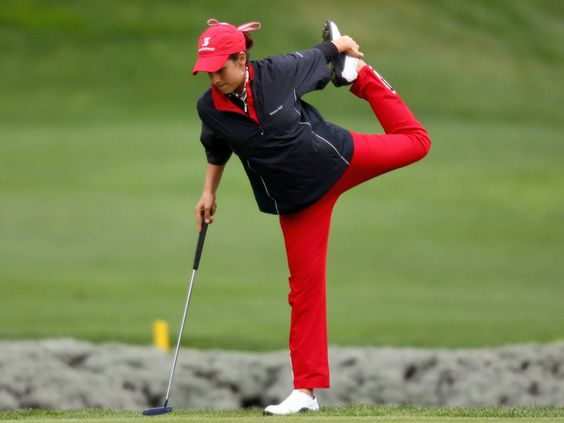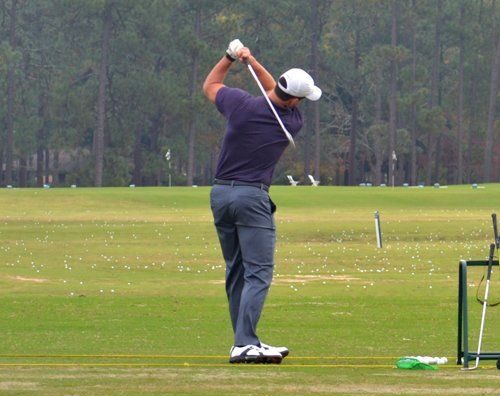How to Become a Professional Golfer
How to Become a Professional Golfer
Golf is more than just a sport; it’s a passion that drives individuals to achieve greatness on the course. For many avid golfers, the dream of turning professional and competing at the highest level is a lifelong aspiration. However, the journey to becoming a professional golfer requires dedication, perseverance, and a strategic approach. In this comprehensive guide, we’ll explore the essential steps and strategies to help you turn your passion for golf into a successful career.
Becoming a Professional Golfer
Importance of passion for golf
Golf is a sport that demands dedication and passion. Without a genuine love for the game, it’s challenging to stay motivated through the ups and downs of the journey to professionalism.
Overview of the journey to becoming a professional
Becoming a professional golfer is not a quick or easy process. It requires years of hard work, training, and competition to reach the pinnacle of the sport. Also, read about How to increase golf swing speed
Developing Fundamental Skills
Mastering the grip and stance
The foundation of a successful golf swing begins with mastering the proper grip and stance. A solid grip ensures control and accuracy, while a balanced stance provides stability and power.
Understanding the mechanics of a golf swing
A consistent and repeatable golf swing is essential for success on the course. Understanding the mechanics of the swing, including the backswing, downswing, and follow-through, is crucial for developing a reliable technique.
Practicing consistently
Practice is key to improving as a golfer. Whether it’s hitting balls at the driving range, practicing putting on the green, or playing rounds of golf, consistent practice is essential for honing your skills and building confidence.
Mental Preparation and Focus
Importance of mental strength in golf
Golf is as much a mental game as it is physical. Developing mental toughness and resilience is crucial for overcoming challenges and performing under pressure on the course.
Techniques for maintaining focus during play
Staying focused and present during a round of golf can be challenging, especially when faced with distractions or setbacks. Techniques such as visualization, deep breathing, and positive self-talk can help maintain focus and concentration. Discover more about What is a scratch golfer
Overcoming setbacks and staying motivated
Setbacks and failures are inevitable in golf, but it’s how you respond to them that matters most. Learning from mistakes, staying resilient, and staying motivated are essential for bouncing back stronger than ever.
Physical Fitness and Health
The role of physical fitness in golf
Physical fitness plays a significant role in golf, as it helps improve strength, flexibility, and endurance, all of which are essential for maximizing performance on the course.
Creating a workout routine tailored to golfers
Designing a comprehensive workout routine that targets key areas such as core strength, flexibility, and cardiovascular fitness can help golfers improve their overall physical conditioning and reduce the risk of injury.
Preventing and managing injuries
Injuries are common in golf, particularly among amateur and professional players who put their bodies through rigorous training and competition. Taking steps to prevent injuries through proper warm-up, stretching, and recovery strategies is essential for staying healthy and prolonging your career.

Equipment and Gear
Choosing the right clubs and balls
Selecting the right equipment is crucial for maximizing performance on the course. From drivers and irons to putters and balls, choosing equipment that suits your swing style and preferences can make a significant difference in your game.
Importance of proper fitting
Having your clubs properly fitted to your height, swing speed, and skill level is essential for optimizing performance and minimizing the risk of injury. A professional club fitting can help identify the best equipment for your game and ensure that you’re getting the most out of your investment.
Other essential gear for professional golfers
In addition to clubs and balls, professional golfers rely on a variety of other gear and accessories to enhance their performance and comfort on the course. From golf shoes and apparel to GPS devices and rangefinders, having the right gear can give you a competitive edge on the course.
Understanding the Game
Rules and etiquette of golf
Golf is a game steeped in tradition, and understanding the rules and etiquette of the sport is essential for enjoying the game and respecting your fellow players. From the proper way to dress on the course to the rules governing play, knowing the ins and outs of golf etiquette is key to being a respectful and responsible golfer.
Analyzing courses and strategizing gameplay
Every golf course is unique, with its challenges and opportunities. Learning how to analyze courses and develop effective strategies for navigating them can help you make smarter decisions and improve your chances of success on the course.
Learning from experienced players
One of the best ways to improve as a golfer is to learn from those who have already achieved success in the sport. Whether it’s seeking advice from a seasoned pro or watching instructional videos online, there’s always something new to learn from experienced players.
Seeking Guidance and Mentorship
Finding a qualified coach or instructor
Working with a qualified golf coach or instructor can provide valuable guidance and feedback to help you improve your game. Whether it’s fine-tuning your swing mechanics or developing a mental game plan, a good coach can help take your game to the next level.
Joining golf clubs and communities
Joining a golf club or community is a great way to connect with other golfers, share tips and advice, and access exclusive resources and amenities. Whether it’s joining a local club or participating in online forums and groups, being part of a golfing community can provide valuable support and camaraderie.
Networking with professionals in the industry
Networking with professionals in the golf industry, such as coaches, players, and equipment manufacturers, can open doors to new opportunities and insights. Whether it’s attending industry events and conferences or reaching out via social media, building relationships with key figures in the industry can help advance your career as a professional golfer.
Competing in Tournaments and Events
Participating in amateur tournaments
Competing in amateur tournaments is a valuable way to gain experience, test your skills against other players, and build a competitive portfolio. Whether it’s local club events or regional competitions, participating in tournaments can help prepare you for the rigors of professional golf.
Gradually transitioning to professional competitions
Making the leap from amateur to professional golf is a significant milestone in any golfer’s career. It requires careful planning, preparation, and a track record of success in amateur competitions before taking on the challenges of the professional circuit.
Building a competitive portfolio
Building a competitive portfolio of tournament results and achievements is essential for attracting attention from sponsors, agents, and tournament organizers. Keeping detailed records of your performance, including wins, top finishes, and scoring averages, can help showcase your talents and potential as a professional golfer.
Building a Personal Brand
Leveraging social media and online platforms
In today’s digital age, building a personal brand is essential for standing out in a crowded field of professional athletes. Leveraging social media platforms such as Instagram, Twitter, and YouTube can help you connect with fans, attract sponsors, and showcase your personality and interests beyond the golf course.
Creating a professional image and reputation
Maintaining a professional image and reputation both on and off the course is crucial for success as a professional golfer. This includes everything from how you dress and conduct yourself during tournaments to how you interact with fans and sponsors.
Sponsorship opportunities and endorsements
Securing sponsorship opportunities and endorsements can provide valuable financial support and exposure for professional golfers. Whether it’s partnering with equipment manufacturers, apparel brands, or corporate sponsors, aligning yourself with the right partners can help fuel your career and elevate your profile in the industry.
Managing Finances and Career Planning
Budgeting for training, travel, and equipment
Managing finances is a critical aspect of pursuing a career in professional golf. From training expenses and travel costs to equipment purchases and tournament entry fees, it’s essential to budget wisely and plan for the financial demands of the profession.
Seeking financial support through scholarships or sponsorships
For many aspiring professional golfers, securing financial support through scholarships or sponsorships can make the difference between pursuing their dreams and falling short. Exploring opportunities for financial assistance from organizations, foundations, and corporate sponsors can help alleviate the financial burden of training and competition.
Planning for long-term career goals and retirement
While the allure of professional golf may be exciting, it’s essential to plan for the long term and consider the realities of a career in the sport. Developing a career plan that includes goals for competition, sponsorship, and financial stability can help you navigate the ups and downs of the profession and prepare for life after golf.
Dealing with Pressure and Expectations
Coping with performance anxiety
The pressure of competition can be intense for professional golfers, leading to feelings of anxiety and self-doubt. Learning how to manage performance anxiety and stay focused under pressure is essential for performing at your best when it matters most.
Setting realistic goals and expectations
Setting realistic goals and expectations is key to maintaining motivation and perspective as a professional golfer. While it’s essential to aim high and strive for excellence, it’s also important to recognize your limitations and celebrate incremental progress along the way.
Maintaining a healthy work-life balance
Balancing the demands of training, competition, and personal life can be challenging for professional golfers. Finding ways to prioritize self-care, relationships, and downtime is essential for avoiding burnout and sustaining long-term success in the sport.
Continued Learning and Improvement
Staying updated on industry trends and techniques
The world of golf is constantly evolving, with new technologies, techniques, and strategies emerging all the time. Staying informed and up-to-date on industry trends and innovations can help you stay ahead of the competition and continuously improve your game.
Seeking feedback and constructive criticism
Receiving feedback and constructive criticism from coaches, peers, and mentors is essential for growth and development as a golfer. Being open to feedback, actively seeking input, and incorporating constructive criticism into your practice and training can help you identify areas for improvement and refine your skills.
Never-ending journey of self-improvement
Becoming a professional golfer is not the end of the journey; it’s just the beginning. Embracing the mindset of continuous improvement and lifelong learning is essential for staying motivated, setting new goals, and reaching new heights in your career as a professional golfer.

Networking and Collaboration
Collaborating with other professionals and experts
Collaborating with other professionals and experts in the golf industry can provide valuable insights, opportunities, and support. Whether it’s partnering with coaches, sports psychologists, or fitness trainers, surrounding yourself with a strong network of professionals can help you maximize your potential and achieve your goals.
Attending industry events and conferences
Networking and collaboration opportunities abound at industry events and conferences, where professionals from all facets of the golf industry come together to share ideas, insights, and experiences. Attending these events can provide valuable networking opportunities, inspiration, and resources to help you advance your career as a professional golfer.
Building a strong support network
Building a strong support network of friends, family, coaches, mentors, and fellow golfers is essential for success in the sport. Having a support system that believes in you, encourages you, and celebrates your successes can provide the motivation and confidence you need to overcome challenges and achieve your goals as a professional golfer.
Giving Back to the Community
Mentoring aspiring golfers
Giving back to the community by mentoring aspiring golfers is a rewarding way to share your knowledge, experience, and passion for the sport. Whether it’s volunteering at junior golf clinics, coaching youth teams, or providing scholarships to promising young players, mentoring can make a positive impact on the next generation of golfers.
Supporting charitable causes related to golf
Supporting charitable causes related to golf is another meaningful way to give back to the community and make a difference in the lives of others. Whether it’s participating in charity golf tournaments, fundraising events, or donating to golf-related charities, supporting worthy causes can help strengthen the golfing community and promote positive change.
Leaving a positive impact on the sport
As a professional golfer, you have the opportunity to leave a lasting legacy and make a positive impact on the sport. Whether it’s through your achievements on the course, your contributions to the community, or your advocacy for important causes, you have the power to inspire others and leave the sport better than you found it.
Conclusion
Becoming a professional golfer is a dream that many aspire to, but few achieve. It requires dedication, perseverance, and a strategic approach to training, competition, and career development. By mastering the fundamentals of the game, developing mental and physical strength, seeking guidance and mentorship, and embracing a lifelong journey of learning and improvement, you can increase your chances of success and fulfill your dream of competing at the highest level of professional golf.
FAQs
What age is too late to start pursuing a career in professional golf?
While many professional golfers start at a young age, it’s never too late to pursue your dreams. With dedication, hard work, and the right guidance, golfers of all ages can achieve success in the sport.
Do you need to have a natural talent for golf to become a professional?
While natural talent can certainly help, becoming a professional golfer is more about hard work, dedication, and perseverance than innate ability. With the right mindset and commitment to improvement, anyone can become a successful golfer.
How much does it cost to pursue a career in professional golf?
The cost of pursuing a career in professional golf can vary widely depending on factors such as coaching, equipment, travel, and tournament entry fees. While it can be expensive, there are ways to minimize costs through scholarships, sponsorships, and strategic financial planning.
What is the most challenging aspect of becoming a professional golfer?
One of the most challenging aspects of becoming a professional golfer is the mental and emotional pressure of competition. Learning how to stay focused, manage stress, and bounce back from setbacks is crucial for success in the sport.
What advice do you have for aspiring professional golfers?
My advice for aspiring professional golfers is to stay focused on your goals, work hard, and never give up on your dreams. Surround yourself with supportive people, seek out opportunities for learning and growth, and remember that success in golf, as in life, is a journey, not a destination.
